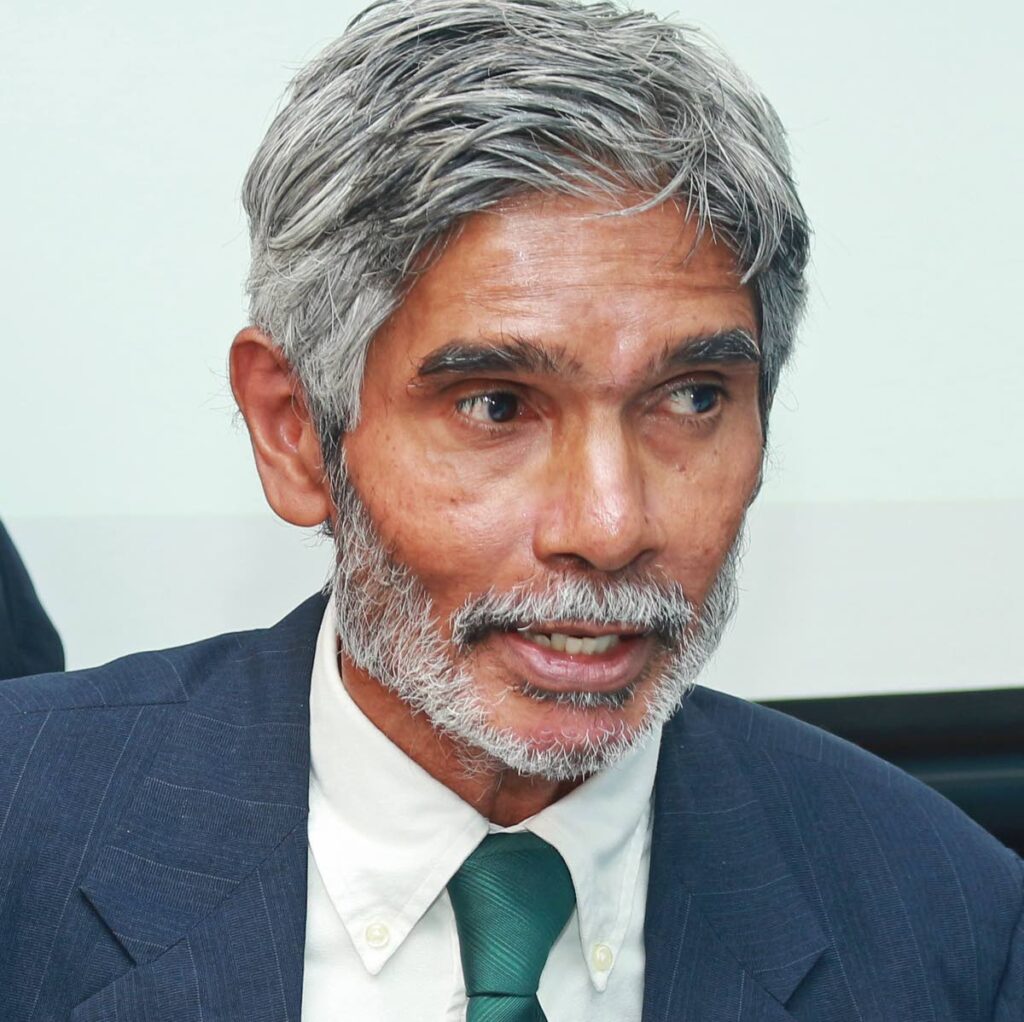A promising UNC rift

WAYNE KUBLALSINGH
ENTRENCHED political classes hardly ever willingly give up power, share power. And within those classes, likewise, entrenched political parties, entrenched boards and executives, entrenched leaders. They hold on to power, win, lose or draw. It is the gambler’s addiction. Even against the odds, the numbers, poor or addicted gamblers still hunger for the Russian roulette, the black jack, the fruit slot machine. To the detriment of their group, themselves, the common good.
Look to the Caribbean and Latin American plantation system imported from Europe in the 16th century. The plantation was not born in the Western Hemisphere. It was born out of feudalism. Millions of serfs, slaves, vassals, in Russia, Western Europe, serving dukes, barons, lords; hoeing and toting corn to the mills. It took over 1,500 years to be reduced and wither.
Look to our plantation constitution of Trinidad and Tobago. It was written by jurists trained in British history, Latin, jurisprudence and law. It is a stingy, unsharing command and control document. It defines the role of the instruments of control, order, jail for you. The Prime Minister, the police, the judiciary, the service commissions, the Elections and Boundaries Commission, etc. It anoints them with legitimacy, formal authority; or to put it picturesquely, gold dust.
Now look carefully. Where does it define the roles, the responsibilities of the ordinary Trinidadian and Tobagonian? It defines a series of specific and broad rights. Other than this, their presence is invisible. A diss to them. Where do they get to share, employ power? Participate in the process of governance, nation-building, development? With their tails between their legs. Voting once every five years. And in the intervening years, well, protest, activism, jail for you, and complaint on our talk shows!
Look to the long-promised local government reform plan. Where are the ordinary citizens in the polling divisions? It is stinginess itself. It is run by the customary bureaucrats, technocrats, officers from the entrenched political parties. It is through them that your potential property tax dollars will be filtered, through the net of salaries, ill-founded projects; and, hopefully not, collusion and bribery.
Rushton Paray’s recent action – fundamentally, he thinks that it is improper to use the current UNC national executive to screen people for the national elections, due in August 2025 or within 90 days thereafter, on the brink of elections for a new executive in June – is symptomatic of slippage within the ranks of the party. And this slippage might augur well for the party.
What appears to be a deft move to make dead sure that the Opposition Leader and a preferred group continue the party leadership has precipitated a promising move for change. Stinginess again; by the entrenched. The UNC is in dire need of reforms. It needs a strong ethical hand to train its executive and membership for the demands of political power.
Those who stick to the skirts of the political leader will bite the dust. Kamla Persad-Bissessar, if she survives to compete in the 2025 general election, will lose. In a race-based electoral system, to put it bluntly, Africans are not going to touch that! Will the membership of the OWTU and the trade unions vote for that? Nope. The working classes have voted in bulk for party; not class!
Ironically, the UNC’s best bet is fragmentation and reformation with elements outside the party. Find a new leader, new term, new manifesto, new vision. Bring the dynamic youth within the party to the fore. And to hail great things to come.
In my view: the transformation of the criminal system, starting frontally with the police; diversification of the public transport streams, perhaps a train, killing the hell-in-a-coconut shell system; a skills-based revolution in our primary and secondary schools; a horticultural revolution, fruit and tree crops, allied to a deep campaign in preventative healthcare to save our overburdened public health system; proper people-centred local government reform, engaging polling division captains, executives and councils and constituency chiefs in constituencies; a revolution in our food consumption and food distribution networks to combat malnourishment; the investment in industrial estates for sustainable energy technologies, batteries, solar panels, transmission cables, recycling, etc.
As leaders, the Mayaro and Tabaquite MPs, Paray and Anita Haynes-Alleyne, have their work cut out. Haynes-Alleyne’s position is promising. She is willing to withstand the consequences of her actions. The diplomatic and euphemistic phrasing of her radicalism is equally promising. The UNC needs to, “get rid of the pits, put rotts by the door” (Lil Kim). A new team.
Chief among the tasks of any new political dispensation or political class, willing to seize power from the grips of the stingy, the political addicts, is to rewrite the national constitution on behalf of the people. A post-plantation constitution.
Let this new constitution say where we fall in our current historical trajectory and what are our common; and several (each by each) tasks. Our goals. Our vision. Our tasks for great and exciting futures, achievements, projects.
Let this new constitution shift power from Port of Spain, the backs of political leaders, parties and bureaucracies, onto the shoulders of the people. Constituency government. People genuinely and properly running their communities; combatting, for example, the idleness of fertile vacant land; hunger; extreme weather events; unemployment; crime; paving and reconstructing their own roads and watercourses. And let this new constitution reform the electoral system.

Comments
"A promising UNC rift"